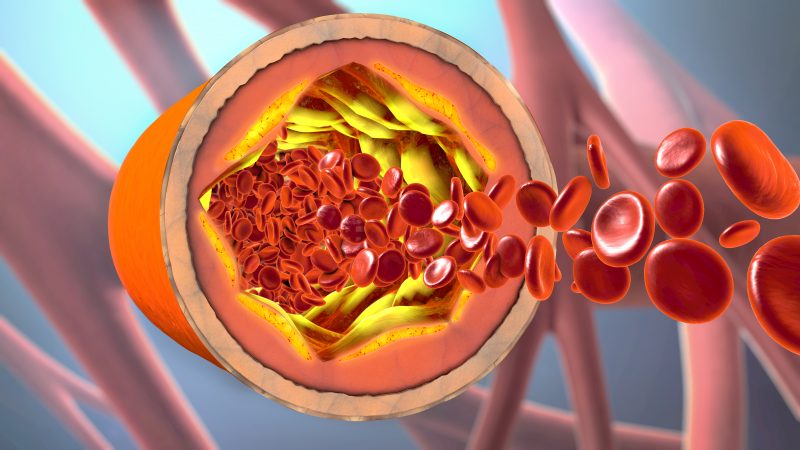We all engage in good habits and bad habits. Sometimes, we simply don’t realize the impact of our bad habits. Sometimes, it’s simply our choice or we think they are too hard to break. Still other times, we don’t know the how to change them. When it comes to habits for brain health, take heart! You can actually make simple, easy changes for a huge health impact!
Take these 7 bad habits. Each of them has a relatively easy fix. You can take them one at a time and change each “bad” one into a healthy, brain-supporting habit. While you’re at it, you can use supplements to nourish your brain each day.
Which habits for brain health do you need to change?
7 Worst Habits for Brain Health
1. Sedentary, Indoors Lifestyle
If you sit indoors all of your day, or even the majority of your day, it’s time to make some changes for the sake of your brain.
You don’t have to run a marathon. But, there are many benefits to getting outside, sitting less, and improving flexibility (1)!
The Fix: Each day, work to do all 3 of these activities:
- Get Outside for Activity: Cortisol levels naturally decrease when we spend time outdoors. What’s more, getting natural sunlight in the morning helps our bodies stay on track with wake/sleep hormones, promoting better sleep. All of this is good for the brain.
- Stay Active: A brisk walk, hike, or other activity that increase your heart rate is brain-healthy! The more you do to increase blood flow to the brain, the better for brain health.
- Work on Flexibility: Every year we age, our bodies become less flexible at the spine and trunk…unless you do something about it. Use stretching, yoga, or other flexibility exercises each day. Believe it or not, your trunk flexibility is directly correlated with blood pressure, and healthy blood pressure levels are good for the brain!
2. Eating an Ultra-Processed Diet
Chronic inflammation is one of our brains’ biggest enemies.
And, the fuel that enemy? Modern, processed foods.
Most of the packaged foods in our supermarkets are full of ingredients that promote inflammation in our bodies. These ingredients are cheap fats like soybean oil that compete with anti-inflammatory fats and hormones in the body. Some of the worst offenders include commercial dressings and condiments with soybean oil, margarine, TV dinners with unhealthy fats, sugary energy drinks, fried snacks like conventional potato chips, and fast-food deep-fried foods.
Many experts who have studied our current intake of inflammatory fats vs. anti-inflammatory ones are convinced that this dietary promotion of inflammation is a central cause to most of our chronic ailments. These conditions include degenerative brain issues. During the last decade, a new cause of neurodegeneration has been identified: sustained immune reactions in the brain caused by chronic inflammation (2).
The Fix: To reduce the risk of inflammatory issues and harm to your brain, reduce inflammatory, processed foods:
- First, follow a healthy, low-carbohydrate diet that increases ketone production in your body. This is hugely beneficial for your brain (3, 4).
- Eat an omega-3 source every day
- Focus on anti-inflammatory foods such as seafoods, spices, nuts, seeds, fruits & vegetables
- Nourish your brain with the right vitamins, minerals, and nutrients. See below.
3. Stressed-Out Lifestyle
There’s little doubt that chronic, mental stress is unhealthy for your brain.
In fact, according to a 2018 study, researchers found that increased blood cortisol levels are correlated with impaired memory and lower brain volume in mid-life (5). What’s more, after studying 2231 human participants, they found the effects were more pronounced in women participants than men.
Much of our modern-day stress is caused by our over-scheduled busy bee lives. But, there’s good news. You can take steps to reduce some stress and choose a slower life. Try to:
- Clear Out Your Schedule. Start by simply looking at your calendar. Are there any activities you could do without? Are there any you could streamline? Do what you can to simplify your schedule. If you can’t remove anything, commit to not adding anything new that is not edifying or vital to your wellbeing!
- Make time for laughter every day. First, identify your most stressful time. Is it the morning? The commute? The first hour back home? If you’re able, work in laughter during these times. Listen to comedy on the commute. Make time for a friend. Enjoy a funny book. Laughter has the opposite hormonal effect of stress.
- Pray and practice gratitude. At the end of each day, take time to practice gratitude and pray. Put down the screens and write 3-5 specific things for which you are grateful. Even when you don’t feel like it. Believe it or not, studies show lower cortisol circulation immediately when subjects focus on things for which they are grateful.
- Eat foods and drinks that may reduce cortisol naturally (see above). Try fatty fish like salmon, dark chocolate (70% or higher cocoa), fruits and vegetables, or superfood fruit and vegetable powders. You can also drink cortisol-busting green tea and black tea to lower cortisol levels. Great for hot summer days!
- Add a stress-fighting supplement to your regimen
- For more ways to cut cortisol naturally, read our full list here.
4. Chronic Dehydration
Believe it or not, your brain is affected by your long-term and short-term hydration status. In fact, mood, fatigue, and alertness are all impaired with dehydration (6). Hydration also affects your digestive tract, skin, kidney function, and more (all tissues depend on it).
The Fix: Aim for a minimum of 64-80 oz. per day water or other fluid. Many people feel great when they drink even more! Make sure to add extra hydration when you sweat. Drink:
- Water: Purified water is your best choice for hydration. It offers all the benefits without any extra ingredients to bog the body down.
- Green and Black Tea: Green and black tea are youthful drinks! They can reduce age-expediting stress and cortisol, have antibacterial properties for oral health, support eye health contain brain-boosting compounds, and can even promote healthy weights (7).
- What about coffee? Coffee is a healthful drink, and a great way to start the day. But its high caffeine level can act as a gentle diuretic, so don’t count it towards your hydration totals.
5. Sacrificing Sleep
For a sharp, youthful, healthy brain, aim to consistently get at least 7-8 hours of good sleep per night. It’s truly one of the most potent brain healers.
In fact, lack of sleep is associated with increased anxiety, slow brain performance, increased blood sugars, hormone disturbances, metabolic issues, memory impairment, knowledge retention, and more (8, 9, 10).
The Fix: Do everything you can to prioritize sleep. This may mean improving your sleeping environment by cooling the temperature, using black-out curtains, and/or using a noise machine to drown out noises that disturb you. It may also mean reducing blue light screens starting an hour before sleep.
If you suffer from snoring, sleep apnea, or anything else that disturbs sleep, it’s worthwhile to speak with your doctor and explore treatments.
6. Trashing Your Gut Health
If you want a healthy brain, you cannot ignore gut health. In fact, your digestive health has direct implications for your brain health. Amazingly, it’s now known that (11):
- Gut inflammation promotes brain inflammation and declining function
- An unhealthy digestive tract promotes illness in other parts of the body
- Healing your gut can reduce brain fog, increase alertness, support youthful memory, and energize the body and brain
- Immune function is dependent on a healthy digestive tract
Healthy digestion is first responsible for nourishing your body, from your hair to your toes. Beyond the nourishment, there is an incredible gut-brain connection that impacts your brain health directly.
The Fix: As stated above, start with a healthy diet and get rid of ultra-processed foods. Next, include healthy, fibrous foods and supplements such as fruits, vegetables, nuts, seeds, and more within a gut -fortifying eating plan.
6. Alcohol Binges
Alcohol can harm your brain in 3 ways. First, it can negatively impact your gut health. Next, it can lead to poor-decision making and risky behaviors that can hurt your brain. Lastly, it directly impacts brain cells and brain structure.
In fact, both binge drinking and the amount of drinks per week can negatively affect global cortical thickness and global cortical surface area (12).
The Fix: Of course, omitting alcohol from your diet is a great way to support brain health! If you decide to drink alcohol, make sure to go several days per week without consuming it. When you drink it, don’t binge and keep it to just 1-2 servings.
Guilty? Start Supporting Brain Health
First, look at every bad habit above and start to rid your lifestyle of them, one by one. The best way to get rid of a bad habit is to replace it with a good one, so look at every fix. Take it slow, and concentrate on one habit per 2 weeks.
While diving into the habits and fixes, you can also start to nourish your brain with specific nutrients that support brain health today.
How? Start using a brain health supplement system like Brain Zone, formulated by Dr. Colbert:
Dr. Colbert’s Brain Zone Basic: This supplement boasts a nutrient complex that specifically supports brain health by supporting your brain’s natural aging strengths while attenuating cognitive declines. In fact, every Brain Zone Basic capsule includes B-vitamins, anti-inflammatory compounds, and healthy fats that encourage optimal brain health throughout your life. Specifically, Brain Zone Basic combines 4 brain-supporting B-vitamins, anti-inflammatory curcumin, and brain-supporting phospholipids (13, 14).
Dr. Colbert’s Brain Zone Focus: If you’re looking for a more youthful, sharp, focused brain experience, take a look at Brain Zone Focus. This supplement combines powerful amino acids, vitamins, and compounds that encourage brain health, clarity, healing, motivation, and focus. In fact, it contains amino acids that have been found to support mitochondria health, memory, brain energy, detoxification, stress-reductions, and more (15, 16).
Brain Zone Advanced: Brain Zone Advanced is a wonderful supplement that encourages brain health, reduced stress, and neuroprotection. It combines naturally occurring compounds like citicoline, adaptogens, flavonoids, phytochemicals, and more. It can take your experience of feeling tired and anxious, and promote increased neurotransmitter activity, neuroprotection, stable healthy moods, and optimal cognitive performance, even under stress (17, 18, 19)!
Dr. Colbert’s Healthy Brain Zone Book: The key ingredient to fighting brain issues associated with aging isn’t in prescriptions or unnatural treatments. It’s in a healthy, gut-friendly diet! This book will give you insight about the science behind the brain-gut connection so you can make wise and healthy diet choices.
Bottom Line
Every habit matters to our health, both good and bad. While it may take time, you can work on the ones that might harm your brain, and replace them with habits that encourage brain health. In the meantime, nourish your brain each day with supplements formulated for healthy brain function!

















